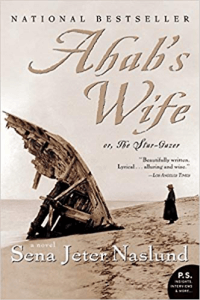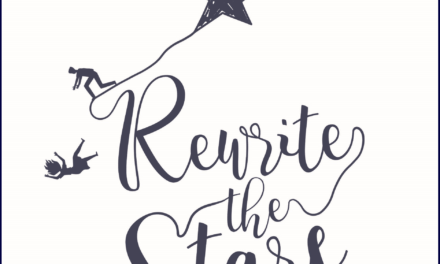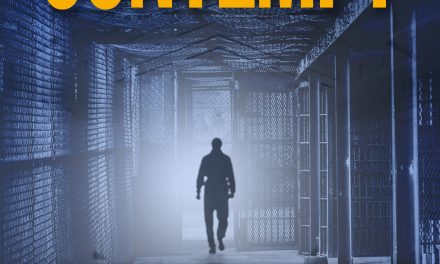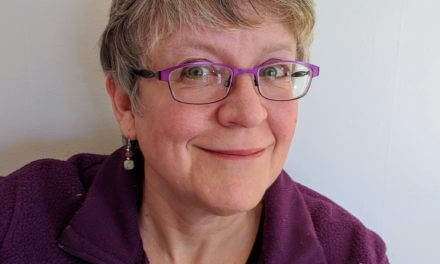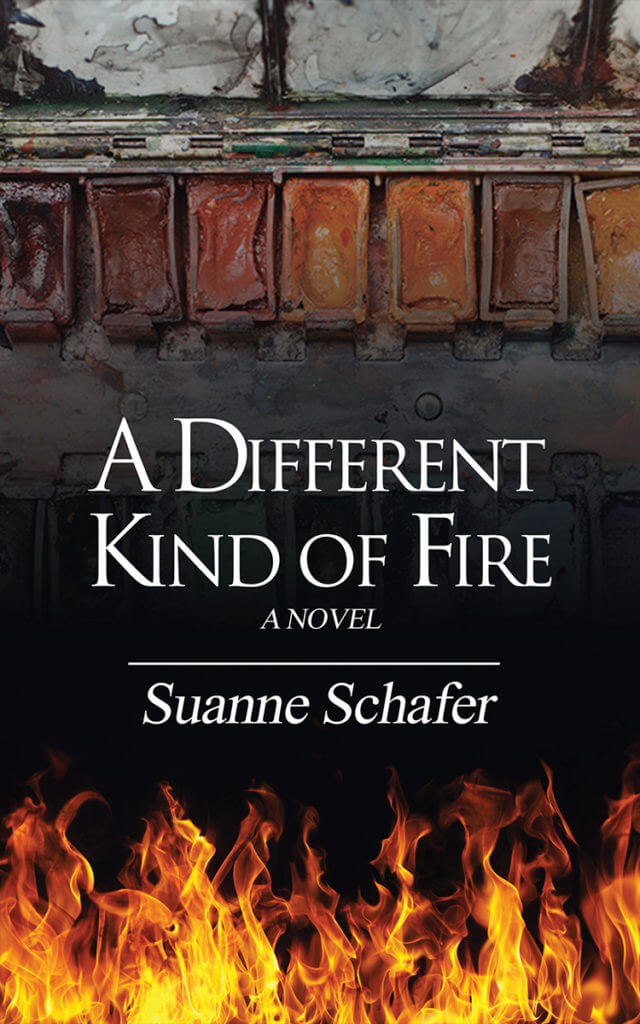
SS: What did you want to grow up to be as a child? Has that child’s desire appeared in your work?
DD: When I was a little girl I wanted to be either a psychiatrist or a writer. Being a writer combines both—my work tends to analyze human behavior. Because my desire to be a psychiatrist was really that I wanted to both help and figure out people, and thus the world, I think for sure that figures in my work. I ask myself as I’m writing why a character would make the choice they just made. If they can’t tell me why, I change it.
SS: What literary pilgrimages have you made?
DD: I’ve been privileged to make more than one literary pilgrimage. Because the MFA in Creative Writing program I attended believed in the cross study of the arts, we visited other countries and looked at not only the literature of the area, but the architecture, the history, and took in performances as well.
The trip that was probably the most significant to me was to England. In London we had our classes in a building in the same block as one of Virginia Woolf’s homes. A park with a bust of her is close by; she is one of my literary idols, and I can’t explain how it felt to travel in her footsteps.
Later in the trip we moved from England to Bath, from where we took a daytrip to Thomas Hardy country in Dorchester. Not only did we see his birthplace, we also went to the house he built, Maxgate, and saw the family’s pet cemetery. We visited Stonehenge where a scene in one of his novels takes place. I can never read his work the same after having visited all of these areas he wrote about.
During the trip we also traveled to Stratford-upon-Avon and visited Shakespeare’s grave, saw various of his family’s homes, and took in a play. I had this perfect moment in the church in which he’s buried, Church of the Trinity. It was almost time for it to close when I got there. Because of that, it turned out I had about ten minutes alone at his graveside. I asked him questions, not that he answered. It was a moving experience.
SS: How long have you considered yourself a writer? Did you have any formal training, or is it something you learned as you went?
DD:I tried to write when I was younger, starting when I was nine. My stories become more melodramatic the older I got and featured lots of billowing hair, horse riding, and kissing, I think. Later I wrote what I called “relationship stories.” They weren’t romances, but about broken relationships being repaired. I thought that was where I would land, until I fell for art fiction.
I switched to journalism in college, thinking maybe I could make a living that way. But my first love was and always will be fiction. While I believe my writing did improve the more I wrote, eventually I felt the need to take it to another level; I entered an MFA in Creative Writing program.
SS: Which non-literary piece of culture could you not imagine your life without?
DD: I couldn’t live without paintings. I get so hungry for art sometimes. My eyes ache to see color and shape, texture and line, to see skewed perspective. When I’m in front of art, I feel woozy with delight!
SS: When you are creating a story, do you avoid reading books in the same vein so as not to be influenced by others, or do you seek out all possible variations for maximum inspiration?
DD: I’ve read so many wonderful art fiction books that have become a part of my DNA. No, I don’t think I did read any during the time I wrote Victorine. It wasn’t on purpose so much as I was completing my MFA, and I had so much reading to do there wasn’t much time to read anything else.
SS: What is a fun or strange source of inspiration that ended up in your book (a name, location, line of dialogue, etc.)?
DD: Every time we’d gather together to start a new semester, the former director and co-founder of the writing program, Sena Jeter Naslund (a historical author herself) would say “Welcome home!” I couldn’t resist having a painting instructor say that comforting, welcoming phrase in my novel.
SS: I love Naslund’s work, especially Ahab’s Wife. Writers are often believed to have a Muse, your thoughts on that?
DD: I don’t have a muse, per se, but I do think some people are like portals: they open my imagination. When they talk with me, ideas buzz and fester in my brain, instead of draining. I’ve learned to seek out the people who foster those ideas so we can cross pollinate. It’s good for our writing. (Can you tell I’m married to a writer?)
SS: What would a fly on the wall see if he watched you while you are writing?
DD: I’d be embarrassed if anyone (or thing) were watching me write. I make faces. I pace sometimes. I drink lots of tea. I go from diligently typing pages when inspired to slowly scrolling, changing one word. I flip back and forth between windows on my screen. I try not to write at home so I’m not tempted to do laundry or get yet another snack. But if that fly were at my home, it would be well fed.
SS: How do you create and construct distinctly individual supporting characters?
DD: For me, each character is an individual. Whether or not I can give them star billing, I respect them enough to allow them to become a fully formed person in my imagination, so when I do use them, I know enough about them to help them live on the page. Or that’s what I try to achieve.
SS: What is your most recent book? In twenty-five words or less, tell me why your book should be one a reader should start next?
DD: Victorine is my debut novel, and I’m so proud of it. Victorine was Edouard Manet’s favorite model, but history has forgotten that she, against all odds, became an accomplished painter herself. That’s a life worth preserving.
SS: If you were describing your writing to someone who hasn’t read anything by you before, what would you say?
DD: I examine life and love through the arts with a fast-paced story.
SS: Where and when is your book set? How did you decide on the setting? The timeframe?
DD: My book is set in Paris in primarily the 1860’s and ‘70’s. When I became fascinated with Victorine’s history (of which we know so little in reality), I knew where to start: with her first meeting with Manet. The time it would span was trickier. I could have taken it much further, as she ended up living a good, long life. But instead I decided to take it up to the death of her mentor and friend, Manet, and what she was faced with: how to go on after you lose so vital a thread to your work.
SS: What kind of research did you think you had to do? How much was actually needed?
DD: I loved how much research it took! While at first I thought it might not take much because we know so much about Manet, I was quickly horrified to discover how little we know about Victorine, and the main reason is because she’s a woman. So little of her work survives. I was desperate to find out more. It took so much time, so much digging. I loved every moment of it, but I could have been done with it so much faster if only history leaned more toward preserving herstory.
SS: Who is the protagonist in your most recent work? Describe him/her in ten words or less.
DD: Victorine is the titular character. She is unconventional, but also determined, bold, courageous, and loyal.
********************

********************
Excerpt from Portrait of Victorine Meurent, Chapter One, Paris, 1862
I am called The Shrimp, Le Crevette because of my height and because I am as scrappy as those little question-mark-shaped delights that I used to study when my father took me to Les Halles. I would stand before the shrimp tank and watch the wee creatures paw at the water, repeatedly attempting to scale the tank, swimming, sinking, yet always rising again. I hoped eagerly for one to crest the tank, not realizing until later that the lid was there precisely to prevent their escape.
So why am I reminded of that tank today?
Today, while I am giving a guitar lesson in my father’s lithography shop, the gifted yet controversial painter, Édouard Manet, enters the shop. He gives me the nod.
I cover the strings of my guitar with my hand to silence them.
Pѐre has mentioned Manet’s recent patronage of his shop, of course, but I have never been here when the artist has come by.
“M. Manet, this is my daughter, Victorine. I believe you’ve …”
“We’ve met,” I say.
“And where is it we have met, Mademoiselle?” he asks, wincing as he looks in the vicinity of my nose.
Is this a snub? I run my hand over the swollen, crooked lump of flesh on my face.
“I must be mistaken.” I turn away, smiling bitterly at my quick temper, at my trying to turn up a nose such as this. Of course he doesn’t recognize me.
I motion for my student to put her guitar away: “That’s enough for today, dear.” Though she looks at the clock with a puzzled brow, she does as I say.
My father graciously allows me to give lessons in his shop, claiming he loves to hear young musicians learning to play, though I suspect it’s more because my mother hates allowing anyone into our house besides her regular millinery clients.
Manet moves toward me, puts his face close to mine; I don’t pull away, but only because that is the way painters see. I would have punched another man for standing so close. He snaps his fingers. “Le Crevette?” he exclaims, backs away.
I raise my chin to regard the posters on my father’s wall. The Compagnie Francaise de Chocolats et des thes declares my father’s fine sense of color, his signature mingling of coral and scarlet. The other posters reveal his repeated twinning of these colors.
Manet grasps my hand with frank friendliness that I almost believe. Want to believe. “It is you; I’ve seen you model at Coutoure’s. But what has happened to your nose?”
I rise on my toes, though the height it gives me is minimal. I motion for Gabrielle to gather her music, and she shuffles the sheets.
I move closer to him while withdrawing my hand from his, take out my emerald green enamel cigarette case (a gift from a wealthy student at Coutoure’s studio) and light a cigarette. I empty my lungs straight at the yellowing ceiling, though my torso is not a foot from his.
My father frowns and waves the smoke away; how many times must I tell him that I am eighteen and I will smoke if I please? He smokes a pipe sometimes. What’s the difference?
“I give guitar lessons now. Obviously, I’m no longer a model.”
Manet’s eyes graze on me. I stand straighter, push my breasts out in my best model’s manner without meaning to. When I realize it, I relax.
“I know just how I’ll paint you. Shall we say tomorrow at one?”
My father runs his grungy shop cloth through his hands.
I raise my chin, art lust in my eyes.
“We shall say two.”
He crooks his eyebrow. “Wear something else, will you? That frock does nothing for your apricot skin tone, much less your eyes. And wear your hair down….” He touches a section of my red hair that flows forward, and I jerk away. “No. Better wear it up.”
I glance down at my mud-colored calico dress, pick up my guitar case and make to lead my young charge out the door.
“Meurent?” he says. I smile, erase it before turning back.
“Do you know where my studio is?”
“You may leave your card with my father.”
I am well aware of the opportunity I have been offered. If it weren’t for this trouble with Willie, I would be ecstatic. As it is, I am just a flicker beyond moved.
